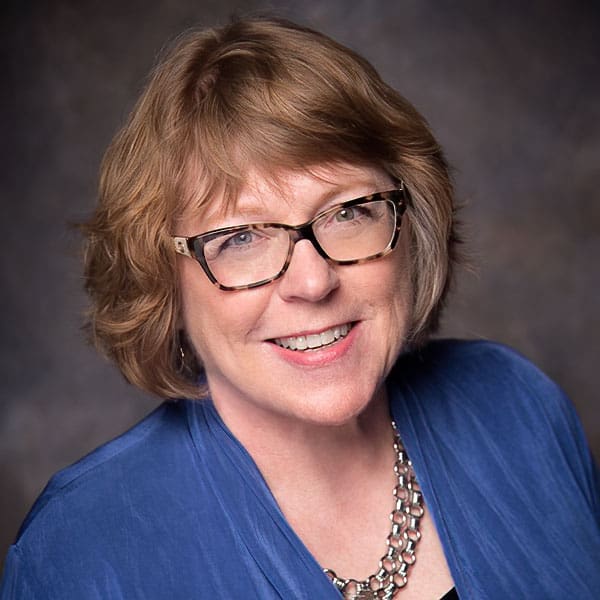What do you want to be known for as a professional? Call it personal branding if that phrase means something to you. What do you want your peers, bosses, clients, and professional associates to say about you?
How can you stand out from the crowd? What differentiates you from your professional associates?
For seven years, I did the kickoff session for a future leaders program for the Georgia chapter of the American Council of Engineering Companies. Participants were young engineers with a few years on the job. We could have anywhere from 25 to 50 in the room.
I always asked them to tell me about their company. Every one of them said something along the lines of “we’re the best . . .” Basically, they all said the same thing — engineering and technical skills.
Then I’d ask what differentiates their firm from others in the room. Silence.
Let’s take that to the individual level. What makes you YOU? What do you want people to remember about you?
Here are some ideas to get you thinking about yourself.
Take Initiative
My CEO clients frequently say they wish their employees would take more initiative.
“Taking initiative means the ability to see something that needs to be done and deciding to do it out of your own free will without someone else telling you to do it,” writes Duncan Muguku in 17 Tips on How to Take Initiative at Work.
Be proactive. Volunteer to lead a team. Spend time with new employees to get to know them and to answer their questions about your firm. Look for ways to make a positive difference.
Get Good At Making Small Talk
Like it or not, you have to talk with people. Getting good at making small talk is something that will differentiate you from many of your peers. It will also build your self-confidence.
Small talk is the light and casual conversation you have with others before a meeting. This chit chat is not about the work; it’s about the people. My favorite approach for small talk is the questions Boaz Rauchwerger shares in this video.
These five questions empower you to start a conversation with a stranger without feeling odd about it. They even work for those introverts who resist talking to anyone outside their own family.
- Where are you from originally?
- What brought you here?
- Do you have a family?
- What do you do?
- What did you want to be when you were growing up?
For more ideas, see this list of 48 questions to make small talk easier.
Smile
It sounds so simple. Just smile. One client told me about an engineer who had such a wonderful smile that it made him stand out from the crowd.
Professional Appearance
As we come out of the pandemic and living in a Zoom world, remember to dress professionally. Dig out your pre-pandemic wardrobe. Make sure clothing still fits and is in good condition.
Use LinkedIn To Highlight What Makes You You
This article has only touched on a few ways you can differentiate yourself from your peers. Do your homework. Figure out what makes you stand out. Then include it in your LinkedIn profile.
LinkedIn is a great place to learn about your peers and your clients. I once had coffee with a man whose LinkedIn profile stated that he spoke Nepalese. What a great conversation starter!
One engineer I know is passionate about the work of Engineers Without Borders. Another spends his time off building water resources for an area in Africa. Another is a competitive photographer. Each engineer differentiates himself and herself by sharing their passions.
See my LinkedIn profile to see what differentiates me from other executive coaches.
This Is Hard Work
Differentiating yourself requires you to get to know yourself better. That can be scary. A safe place to begin is to ask your mom what makes you YOU. If she’s not available, ask another family member or two. Ask your significant other and a best friend.
You may be surprised at the answers you get. Embrace that knowledge and use it to help you stand out from the crowd.
About the Author Pamela A. Scott

Pam started her company more than 20 years ago. For much of that time, Pam has coached engineers and architects to be leaders in their companies.
She brings more than 25 years of communications expertise and leadership experience as
- A national award-winning newspaper editor
- A communications specialist writing for Congress
- A successful entrepreneur specializing in coaching clients to reach their full potential
Clients have ranged from solo practitioners to companies such as Turner Broadcasting System, Coca Cola, Federal Reserve Bank, and engineering firms such as Walter P. Moore. For 15 years, Pam was a member of Vistage, an international organization of CEOs.
Pam has a master’s in education and human development from George Washington University and a bachelor’s in communication from Bethany College. In Toastmasters, she has achieved Advanced Communicator Bronze and Advanced Leadership Bronze levels.
We would love to hear any questions you might have or stories you might share about being a better you.
Please leave your comments, feedback or questions in the section below.













